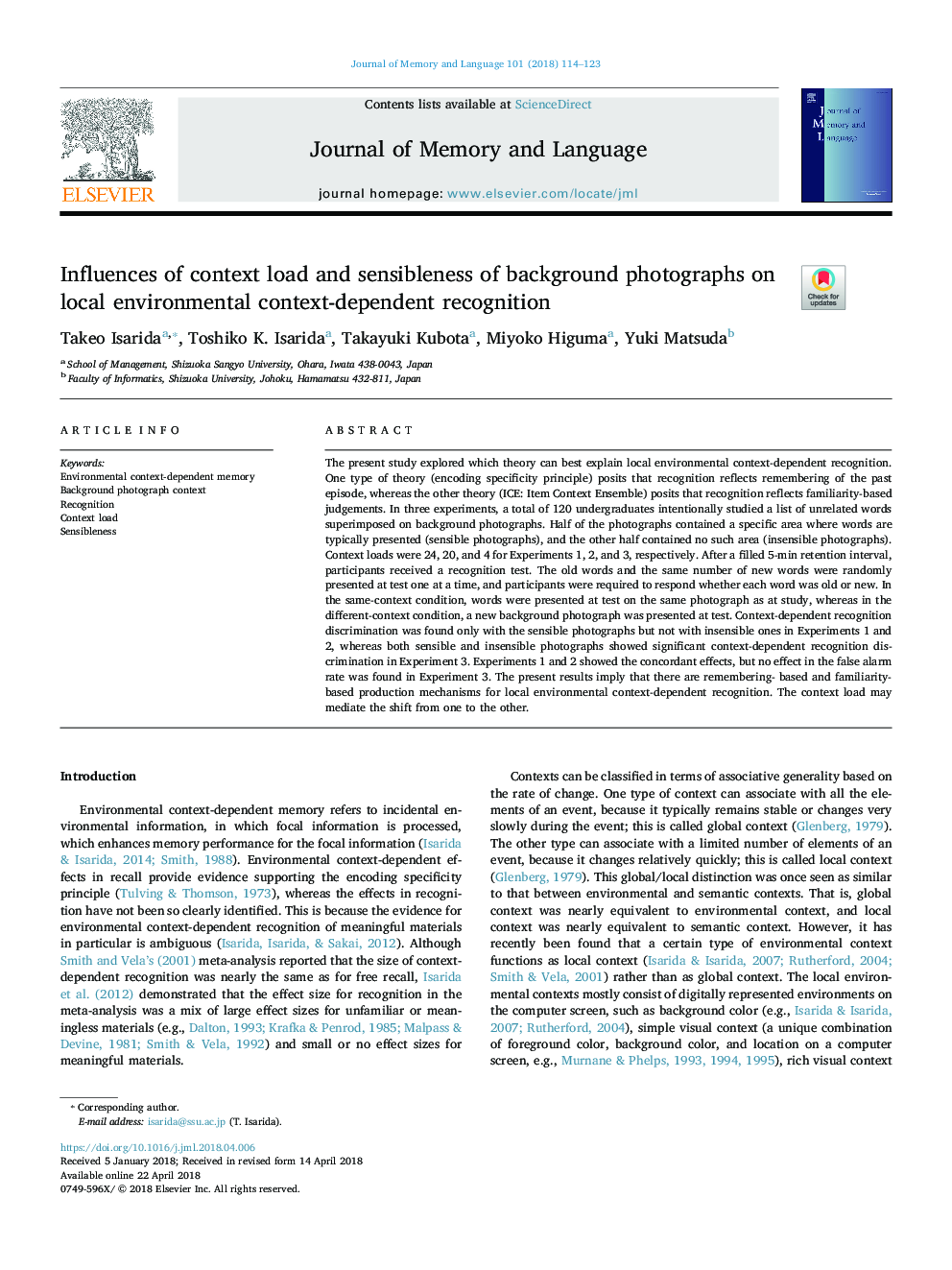| Article ID | Journal | Published Year | Pages | File Type |
|---|---|---|---|---|
| 7296813 | Journal of Memory and Language | 2018 | 10 Pages |
Abstract
The present study explored which theory can best explain local environmental context-dependent recognition. One type of theory (encoding specificity principle) posits that recognition reflects remembering of the past episode, whereas the other theory (ICE: Item Context Ensemble) posits that recognition reflects familiarity-based judgements. In three experiments, a total of 120 undergraduates intentionally studied a list of unrelated words superimposed on background photographs. Half of the photographs contained a specific area where words are typically presented (sensible photographs), and the other half contained no such area (insensible photographs). Context loads were 24, 20, and 4 for Experiments 1, 2, and 3, respectively. After a filled 5-min retention interval, participants received a recognition test. The old words and the same number of new words were randomly presented at test one at a time, and participants were required to respond whether each word was old or new. In the same-context condition, words were presented at test on the same photograph as at study, whereas in the different-context condition, a new background photograph was presented at test. Context-dependent recognition discrimination was found only with the sensible photographs but not with insensible ones in Experiments 1 and 2, whereas both sensible and insensible photographs showed significant context-dependent recognition discrimination in Experiment 3. Experiments 1 and 2 showed the concordant effects, but no effect in the false alarm rate was found in Experiment 3. The present results imply that there are remembering- based and familiarity-based production mechanisms for local environmental context-dependent recognition. The context load may mediate the shift from one to the other.
Keywords
Related Topics
Life Sciences
Neuroscience
Cognitive Neuroscience
Authors
Takeo Isarida, Toshiko K. Isarida, Takayuki Kubota, Miyoko Higuma, Yuki Matsuda,
